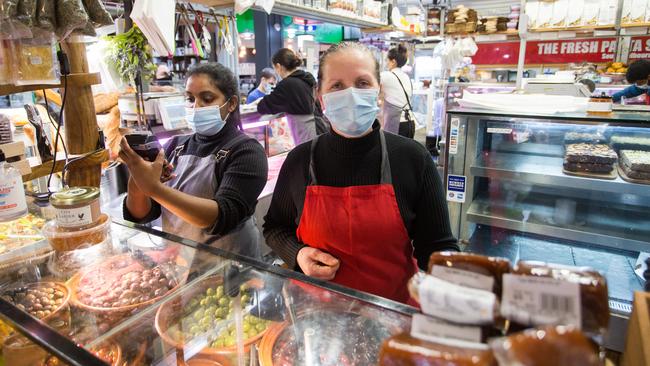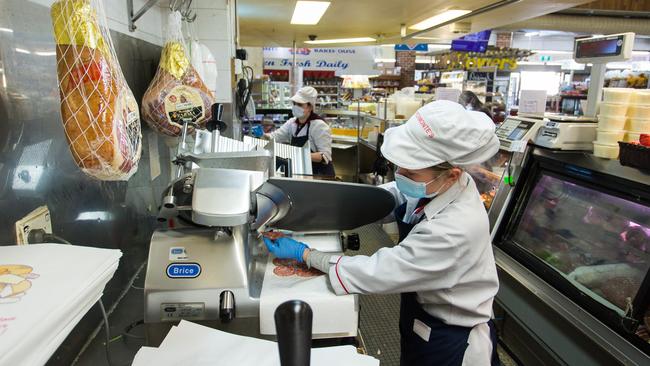Coronavirus: Groceries plea for Christmas food
Supermarket operators appealing to Victorian government to ease stage-four restrictions amid fears of a looming food shortage.

The country’s largest supermarket operators have directly appealed to the Victorian government to ease stage-four restrictions on shipping groceries from warehouses into stores that they say could lead to a food shortage by Christmas.
Woolworths, Coles, Aldi and independent supermarkets — in a Friday phone hook-up with Victorian Jobs Minister Martin Pakula and other government representatives — warned that supply chains that feed the state and the rest of the country would soon hit capacity constraints, making it impossible to catch up for the expected end-of-year holiday rush.
The government asked the supermarket operators to provide details on infection controls at stores and warehouses, with more consultation expected as early as Tuesday.
The key issue for the supermarket industry is that stage-four restrictions on workers allowed at key warehouses and distribution centres is strangling the ability to ship key Christmas grocery staples between now and December.
Woolworths and Coles typically need to have 15 per cent of their Christmas stock in stores by the end of September and 40 per cent by the end of October.
The remaining groceries are shipped to thousands of stores between November and December.
With restrictions on shift sizes at key grocery distribution points, it is unlikely the supermarkets will have 15 per cent of Christmas stock in stores by the end of this month.
Restrictions in Melbourne are set to be eased at the end of September if the city averages fewer than 50 new daily cases over a fortnight starting on Monday.

As of Sunday, Melbourne had a 14-day daily average of 56.9 new coronavirus cases.
Geoffrey Annison, the deputy chief executive of industry group Australian Food and Grocery Council, said the problem was not producing groceries but getting them into stores in time and in the necessary quantities. “The manufacturers and suppliers … are pretty confident they have enough manufacturing capacity to keep pace with the events that have occurred in Victoria; the speed at which they can get those products down on to the supermarket shelves is constrained a little bit by the restrictions that have been brought into place by the government,” Mr Annison said.
“The constraints are making that more difficult.
“If the path to low COVID numbers happens sooner than they are currently anticipating, then they will have an opportunity to review and we are encouraged by the fact we are in constant contact with the Victorian government.’’
At the South Melbourne Market, Maria Totos and her family have owned the Emerald Deli for three decades.
Since the start of the pandemic, business has fallen more than a third. It’s not just restrictions keeping people at home that are the problem, Ms Totos said, but their suppliers have cut back to three days a week.
“We sell fresh produce and it’s impossible at the moment to get the balance right,” she said.
“It’s very unpredictable; we don’t know from day to day how things are going to change. Every time you order, you take a risk.
“We’re trying not to raise our prices but it’s tough.”
The supermarkets told the government that once September was over, it would be impossible to make up lost ground because there were not enough trucks, pallets and workers available to transport extra groceries.
That would not only causes shortages for Victoria but also threatens food supplies in the rest of the nation.



To join the conversation, please log in. Don't have an account? Register
Join the conversation, you are commenting as Logout